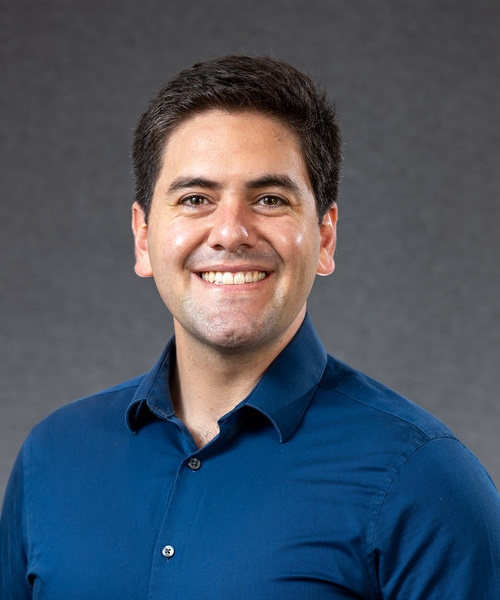April 19, 2024
ME Assistant Professor Lucas Meza received an NSF CAREER Award to study how to create tough, sustainable materials using nanoengineering.

Lucas Meza
One challenge with developing sustainable materials is creating them to be strong and tough enough to be used for engineering. This is something natural materials like wood and leather already achieve, but it has been a challenge for engineered materials like biodegradable plastics. To address this, the Meza Group, led by Assistant Professor Lucas Meza, recently received a National Science Foundation Faculty Early Career Development Program (CAREER) Award to study how to create strong, tough and sustainable nanoengineered materials. The award is for $736,000 over five years.
Meza’s lab studies fracture toughness, which measures materials’ resistance to breaking. Previous work from his lab showed that materials can become tougher at the micro- and nanoscale because their size unexpectedly impedes crack growth. With this new understanding of the unique properties of nanomaterials, the researchers aim to uncover fundamental insights about how nanomaterial toughness can translate to larger scales.
This NSF project is inspired by the precise way that nature designs its materials. The tiny structures found in everything from antlers and lobster shells to spider webs are specifically designed to be strong and tough, meaning they can bend and stretch without breaking. The researchers here aim to understand and replicate the architectures found in nature to create tough, sustainably engineered materials.
Our goal is to develop a set of fundamental fracture design principles that describe how we can use architecture at small scales to make any material tougher”
“Our goal is to develop a set of fundamental fracture design principles that describe how we can use architecture at small scales to make any material tougher,” Meza says. “We plan to examine crack formation, the length scale and the spacing between materials to predict how that will affect toughness.”
The researchers will use small- and large-scale 3D-printing of sustainably sourced materials such as biodegradable thermoplastics or hydrogels. They will then examine the materials’ fracture toughness through mechanical testing and computer modeling that will show how structures can spread, deflect or impede damage to enhance toughness. This knowledge could eventually inform the design of new sustainable materials for aerospace, construction and automotive industries.
The CAREER award also supports promoting the use of sustainable materials in the next generation of engineers. As part of the undergraduate outreach initiative Path to UW, Meza will teach a summer academic transition course about sustainable materials design to Seattle Colleges students. Meza will also engage ME graduate students through a course about architected material design where students will work to develop new sustainable materials solutions to existing engineering problems.